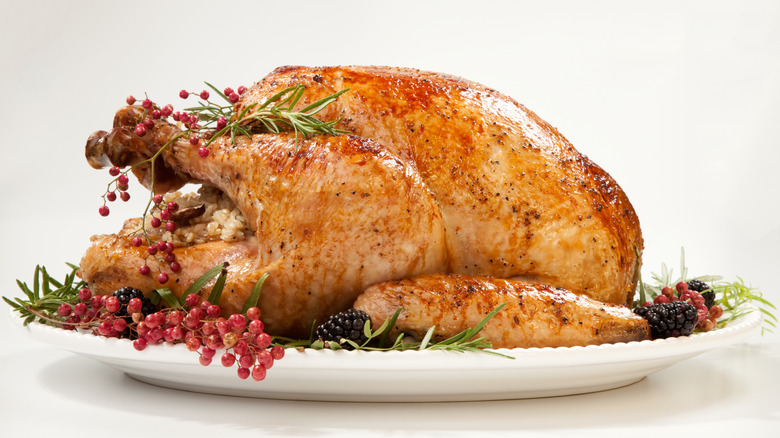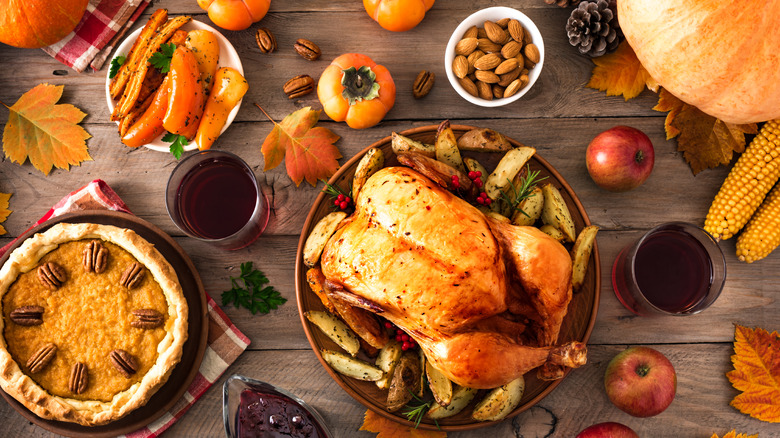Why You're In The Mood For A Nap After Eating Turkey
Taking a nap is almost as big a part of the Thanksgiving tradition as eating a large meal centered around the perfect juicy turkey (via The New York Times). It just seems to be an accepted fact that eating that big bird with all the trimmings makes you sleepy, and there may be some scientific truth to this idea.
The changes that occur in our bodies when we consume any food are complicated and depend a great deal on what foods we consume in what quantities and in what combinations. So, is the turkey really to blame for that pleasant drowsy feeling we get after a Thanksgiving meal, or are there other factors coming into play and the bird is just getting the blame?
The story begins with an amino acid called tryptophan. According to Livestrong, turkey is a rich source of this compound, along with many other foods we regularly eat. This could get a little complicated, so be ready to take a dive into a bit of biochemistry and learn how this extraordinary machine we live in actually functions.
From turkey to nap time
Tryptophan is an essential amino acid and a precursor to the body's production of both serotonin and melatonin (via The National Library of Medicine). In simple terms, this means that your body takes tryptophan and uses it to make these two very important neurotransmitters.
Serotonin is a significant part of our reward system. HealthLine tells us, It affects the brain by helping us feel happy and alleviating anxiety. In short, among the many other functions it serves, it helps us relax. On the other hand, the hormone melatonin is primarily associated with enabling us to sleep. Via the Mayo Clinic, special receptors in our brains bond with melatonin, and as they progressively increase, we feel more tired. The higher the melatonin levels in our blood, the faster we get sleepy.
So, why do you want to take a nap after a Thanksgiving meal? In part, it is because of the chemical changes brought on by the high levels of serotonin and melatonin brought on by the rich tryptophan content of the turkey. Be aware though it isn't only the bird dragging you to the couch. The New York Times reports that the copious carbohydrates on offer also play a role. And as covered in Livestrong, many other foods associated with the holiday can also cause drowsiness, including potatoes and other starches, sweets, and dairy products. The bird may be partly to blame, but it has a grand supporting cast of Thanksgiving sides.

